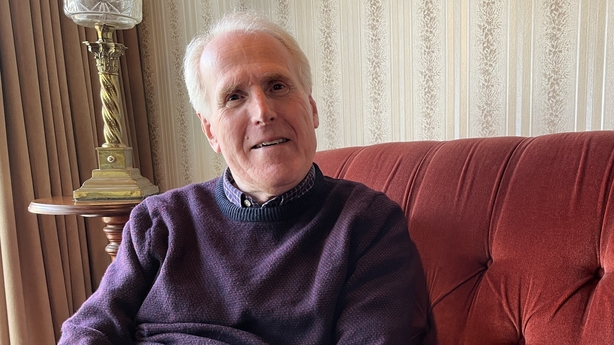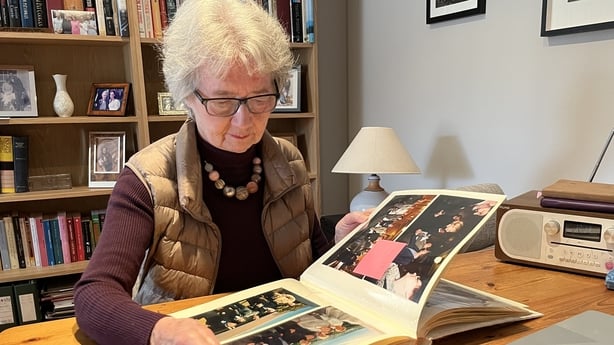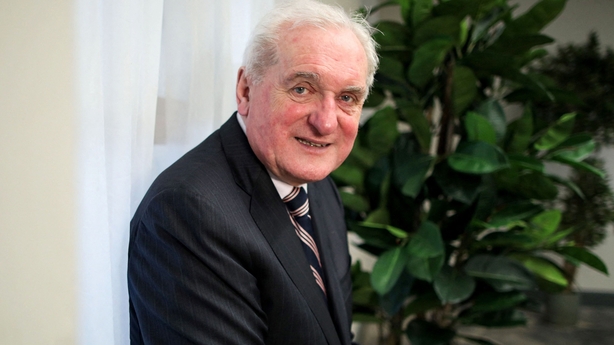It is 25 years to the day since the Good Friday Agreement was signed.
Last-minute nerves were overcome as the various negotiating teams were asked publicly, in turn, whether they agreed to endorse it.
It was done in alphabetical order - the Ulster Unionists were last, but without the party it was no deal.
There had been a lengthy party meeting in Castle Buildings just before the acceptance plenary.
Dermot Nesbitt was on the UUP the negotiating team. He remembers a note pushed under the door by a senior British official as the other delegations waited anxiously in the corridors outside.
"Are you coming?" it said.
With a Tony Blair letter in his pocket giving reassurances on decommissioning, David Trimble decided he had enough to jump.

It had been a tortuous negotiation. Unionism had been conflicted. Dermot Nesbitt had been left in no doubt about that.
"I remember sitting in a Pizza Hut and this fella went past me and thumped me in the shoulder and said 'How dare you?'
"And yet there was another person, his father was murdered by the IRA, and he said 'You've got to do it because we don’t want any other people to suffer as we suffered'."
The UUP and SDLP were the primary movers in the talks. The two traditions had tried many times before to find an accommodation.
This time felt different, said Bríd Rodgers, the veteran SDLP politician who went on to become a minister in the first post-agreement executive.
"We were coming from three decades of continuous slaughter of innocent people. You would have thought it was impossible to get those parties around the table and to get an agreement.

"I think it was in many ways a miraculous achievement.
"But I think the difference was the international help from [Bill] Clinton and the fact that the two governments were really focused on getting an agreement.
"It was as if the whole world was wanting us to succeed.
"The will to compromise overcame the fear of compromise, which is always a big thing in Northern Ireland," she said.
Former taoiseach Bertie Ahern is credited for sticking with the talks in those final days, even as his own mother was being laid to rest.
He told how he had renegotiated the section on cross-border institutions as he paced up and down Griffith Avenue in Dublin, the night before her funeral. Unionists had threatened to withdraw if changes were not made.
He knew that there would be no better chance to secure a deal.
"We were losing thousands of people and huge numbers of people were being injured so that’s the big success.
"Some things worked wonderfully well, the reform of policing, demilitarisation, the prisoners thing went pretty well.

"The institutions has been a nightmare - stop start - decommissioning took too long.
"The word process means you’re processing it, so there are still some things to resolve," he said.
Ms Rodgers said there are now several generations enjoying the peace that the Good Friday Agreement secured.
For Mr Nesbitt, signing up to the deal was a "moral quandary" but he believes his party made the right decision - one which saved countless lives.
We need your consent to load this rte-player contentWe use rte-player to manage extra content that can set cookies on your device and collect data about your activity. Please review their details and accept them to load the content.Manage Preferences






